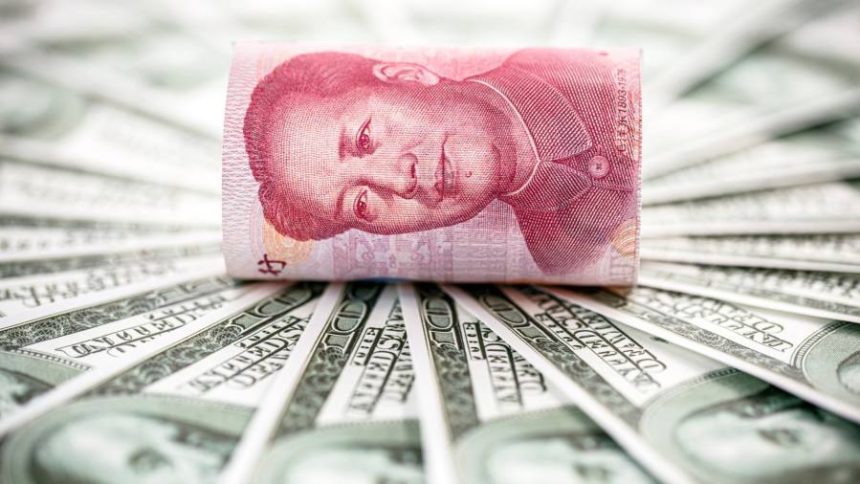Receive free Chinese business & finance updates
We’ll send you a myFT Daily Digest email rounding up the latest Chinese business & finance news every morning.
China’s central bank has said it will to cut the amount of foreign currency that financial institutions are required to hold in reserve, signalling its resolve to support the weakening renminbi.
The currency has dropped more than 5 per cent against the dollar this year amid concerns about the world’s second-biggest economy, which has been slow to recover since Beijing abandoned coronavirus restrictions at the start of 2023.
Policymakers have picked up the pace of new measures to support China’s currency and economy, particularly in property. The cities of Guangzhou and Shenzhen this week eased mortgage conditions for first-time homebuyers.
But questions over the outlook of cash-strapped developers including Evergrande and Country Garden have subdued demand for Chinese securities and prompted investment banks to downgrade their forecasts for the renminbi’s dollar exchange rate.
The People’s Bank of China said on Friday it would lower its foreign exchange reserve requirement for banks from 6 per cent to 4 per cent, effective September 15, “in order to improve the capacity of financial institutions to use foreign exchange funds”. The renminbi rose as much as 0.2 per cent to Rmb7.2431 against the dollar following the move.
The reserve requirement cut boosts the amount of dollars available in the local market and means commercial banks can afford to cut the interest rates they offer on dollar deposits. That is intended to make it less attractive to convert renminbi into dollars, which has been contributing to pressure on the Chinese currency.
Becky Liu, head of China macro strategy at Standard Chartered, estimated the cut would only unleash about $16bn of US dollar liquidity. She said the move’s impact was primarily in signalling the central bank’s resolve to support the renminbi, since “this amount is insignificant by itself from a liquidity and dollar rates perspective”.
Liu added that the cut and other recent measures to bolster the exchange rate “only aim to stabilise the renminbi and reduce overly speculative positions, instead of altering the trend” of depreciation against the dollar.
Data from Hong Kong’s Bond Connect investment scheme show foreign investors sold a net Rmb148bn ($20bn) of Chinese government bonds in the first seven months of the year, as monetary easing measures in China and rate increases by the US Federal Reserve have widened the interest rate differential between renminbi- and dollar-denominated debt.
Foreign investors also dumped a record $12bn worth of Chinese stocks in August, and US commerce secretary Gina Raimondo this week warned during a visit to Beijing that American companies were starting to see China as “uninvestable”.
“It’s a very difficult battle for Chinese authorities to restore confidence in the currency given the combination of a resilient dollar and weak domestic data from the property sector,” said Sean Callow, senior currency strategist at Westpac. “The move today is not a game-changer.”
Read the full article here




